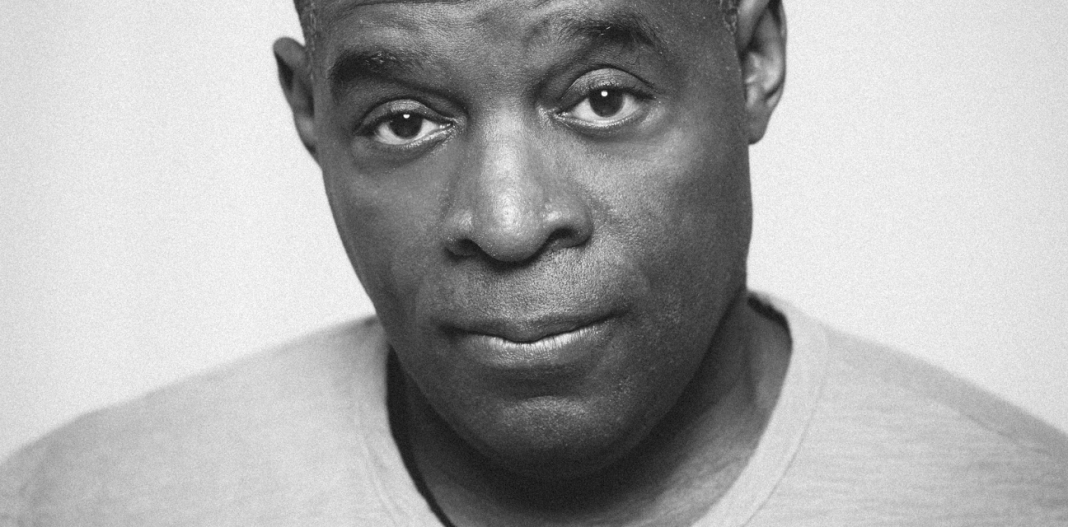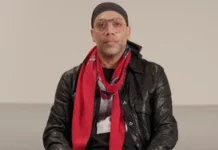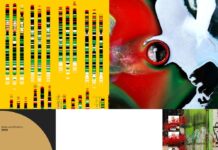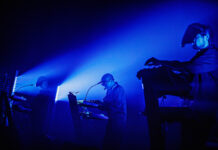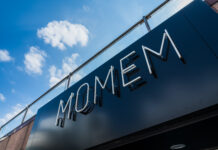You wanted to become a DJ before you became a producer. What did it mean to be a DJ back then? It wasn’t a profession like today.
My mother did these little parties where she would invite her friends twice a year. I would play the music but I did not have two record players, I would just play cassettes making sure a recording started once the other cassette ended. That was my way to start. Obviously, being around Juan and Derrick and seeing people like Larry gives you an impression. I was playing football in college and I decided my passion was going to be music. So music became right away the most important thing in my life. I dropped football and I wanted to be a DJ. Derrick hooked me up with these guys Art Payne and Keith Martin. They went to school with me at Eastern Michigan University. Derrick talked to them and they would let me hang out with them. They had turntables and all this vinyl. That was really key. They would let me get an overview. At that time Derrick had moved to Chicago and Juan did his thing. Cybotron was hot, so I did not see him no more.
Where did he go? Would he already travel to Europe?
He was around. This is college now. I am in college. People move on in life. All that stuff. He was around, but he was doing his thing and I was just doing my thing. By then I got to touch the turntables and practice a little, try to follow what Art and Keith were doing, take any impression. Eventually, I said I wanna get better quicker. I am an athlete. Athletes practice every day, they work on their skill, they do things that help them improve right away, as quick as possible. I saw this seminar on DJing. If you wanna be a DJ, if you wanna learn the best way, come here. It was in Ohio. I paid 50 dollars and drove up there, sat there for a day. What they taught me was how to count BPMs [beats per minute]. When they teach you how to count BPM, they basically teach you to put your records in order. You are only moving the pitch that much. Obviously there is more to it, but that was imperative, because it helped me, gave me confidence. I bought my own turntables but I couldn’t afford 1200s. I got some belt-driven turntables at the pawn shop, and I really started practicing. I practiced so much and finally got good enough.
Where would you play?
Eddie Folkes was going to [Eastern University] at that time. He was a big DJ doing all the parties on campus then. That helped me having a drive and pushing forward. Eventually I started playing at fraternity parties. That put me in the circuit.
How did the fraternities deal with the issue of race?
There were Black fraternities and white fraternities. Obviously, I was in a Black fraternity. It was funny: the white fraternities, they had these big parties with 2000 kids on campus, they listened to Rock’n’Roll and to Punk Rock. They had nothing to do with dance music. They drank beer and just didn’t wanna dance. So I said, eventually they will dance. Look at us now, around the world. That quite changed. It used to be only Black people dancing, now it’s a global culture.
What did you study at the university?
Telecommunications: TV, Radio and Broadcasting. I had aspirations to be a director, I wanted to do something in film, but still connected to music. Whether I would be a radio DJ or a director, it was all connected. I wanted to get my hands on the equipment, understand how to work the cameras.
How did you finally start to produce music?
Just from DJing and being around Juan and Derrick. You start to bring drum machines to your parties because you feel you don’t have enough music or you have to play stuff twice.
What would you play?
I played disco, Cerrone and Prince, Parliament, Cybotron, Depeche Mode. There was a void I needed to create music.
Would the kids at the fraternity know Juan’s music and that he was a kid from Detroit?
It was a small group of people. He was popular among the Blacks at that time. Hip Hop hadn’t taken off back then. It was kind of the beginning, Hip Hop, House and Techno were running parallel at that time. I was playing Sugarhill Gang, too. Black kids where listening to all kinds of progressive music, to Hip Hop, to The B52s or to Kraftwerk. That was the music.
There was no sound of Detroit before you created the sound of Detroit?
Besides Juan and maybe [A Number Of Name’s track] “Sharevari” there wasn’t a definitive sound of Detroit. And of course there was Motown.
